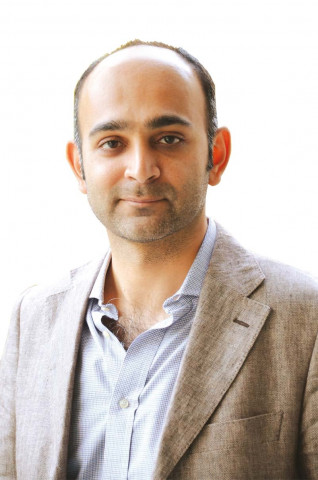Discontent and Its Civilizations: Global citizen, local impressions
Mohsin Hamid’s essays explore life in three homes — Lahore, New York and London

Author Mohsin Hamid
Hamid’s essays serve as snapshots of his personality as he describes responses to given situations; each vignette neatly encapsulates the author’s experiences of growing up and living in the cultural centres of three different countries. Most of the essays are no more than three to five pages, so it is easy to pick up at any place in the book and not miss a beat.
The book does not fail to please for most of the time, while at other times it can be fairly predictable as Hamid plays a version of the stereotypical Westernised Pakistani. Some of the essays, which Hamid has carefully not called ‘short stories’, are heavy, laden with mixed emotions such as fear and insecurity, while others are light-hearted, almost whimsical.
Hamid describes the Pakistan of his youth as a place “full of surprises, of kinds and twists, of unexpected titillations and empathetic connections, of a diversity that can only be described as human.” But here, “home” is not limited to Pakistan — while Hamid says he feels most at home in his native Lahore, he is equally rooted in London and New York.
However, each home comes with its own set of negotiations. In one essay, ‘Down the Tube’, the author recalls an encounter in which he succumbs to a typical Westerner’s fear of a Pakistani ‘terrorist’ — a bearded man in a traditional Pakistani kurta spotted on the train. The man in question has done nothing to deserve the label of ‘terrorist’ and Hamid acknowledges that his paranoia has been brought on by living in London for ‘too long’.
The collection also includes the story of the birth of his first child, Dina; a touching, brief memoir in which Hamid writes that the ‘centre of his world’ shifted with his daughter’s birth. “She had bumped me out of the centre of my world. I’d become a baby person, and it felt good, better than what had come before,” he writes.

If you imagine the author’s work as art, some essays in this collection are written with heavy impasto while others appear to be quick brushstrokes. When writing on a flirtation in the essay ‘In Concert, No Touching’, the prose is languid. On the contrary, when discussing the physical attributes of famous authors in the essay ‘Get Fit with Haruki Murakami’ he spitfires jokes about each writer’s physical fitness.
The organisation of the stories in this collection felt a bit contrived, with the broadly sweeping categories of ‘life’, ‘art’ and ‘politics’, as though the author is preparing a doctoral thesis on his life’s writings. Additionally, the decision to only share essays written after the publication of Moth Smoke is disappointing. In doing so, Hamid excludes earlier essays and news stories, particularly work from his university days when he was a student of Toni Morrison.
With these three dozen essays, Hamid strikes a tone which feels close but not overly revealing, maintaining a formal distance between himself and his audience. One thing he is not is didactic and more often than not, he is open to airing his misunderstandings of the world.
Carol Khan is a subeditor and coordinator in the Peshawar office of The Express Tribune. She tweets @carolkhan
Published in The Express Tribune, Sunday Magazine, March 22nd, 2015.


















COMMENTS
Comments are moderated and generally will be posted if they are on-topic and not abusive.
For more information, please see our Comments FAQ